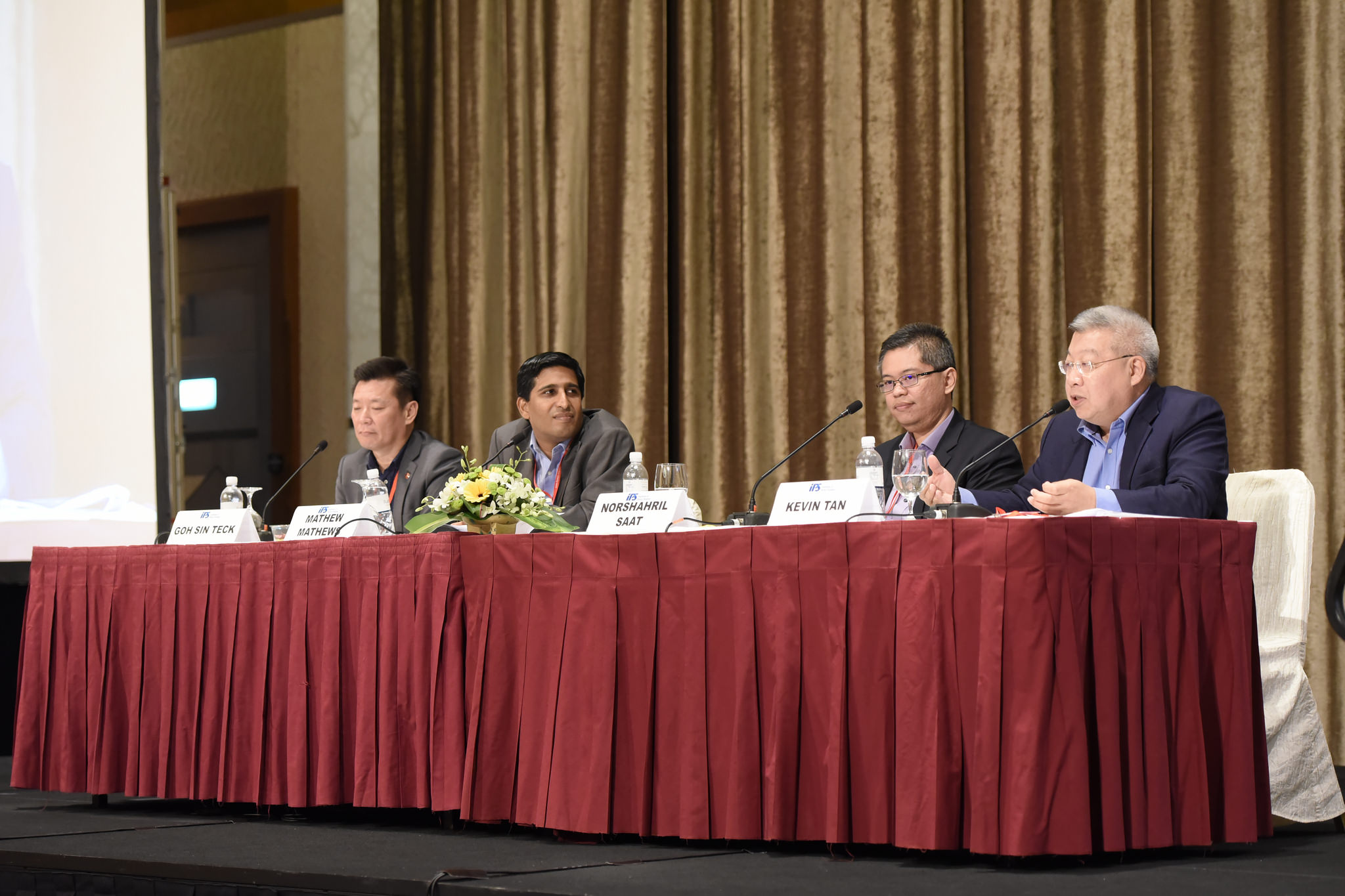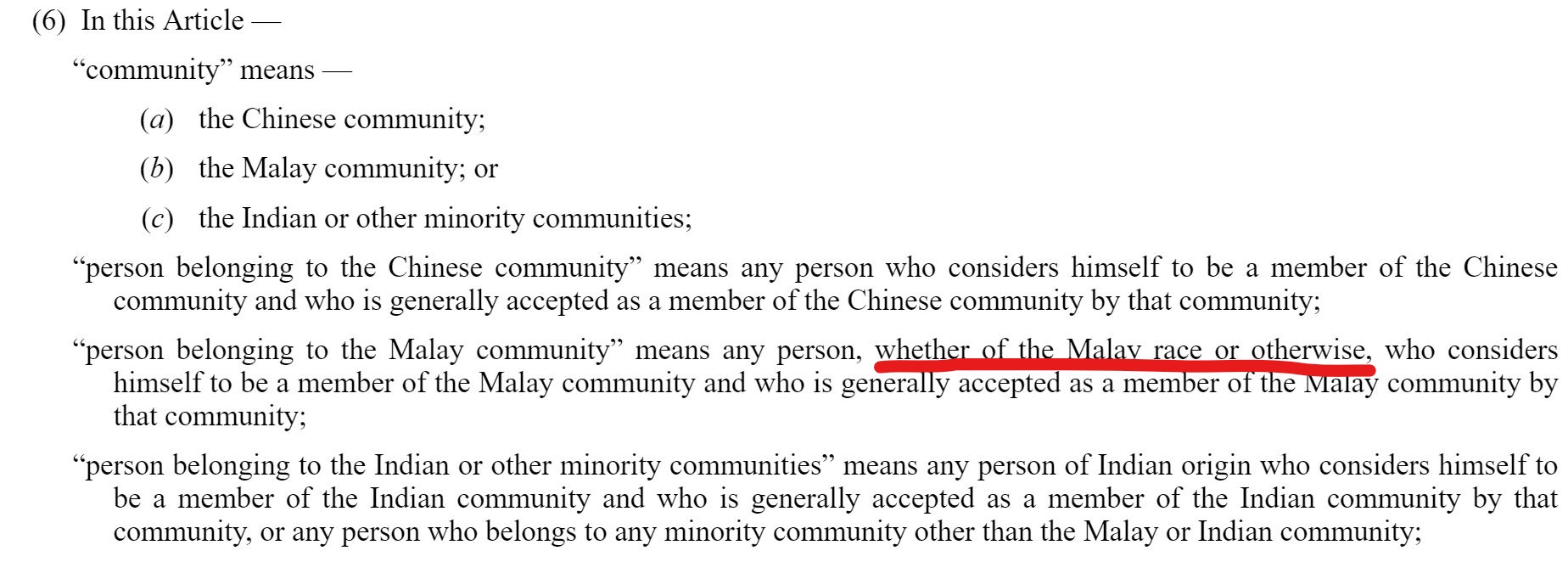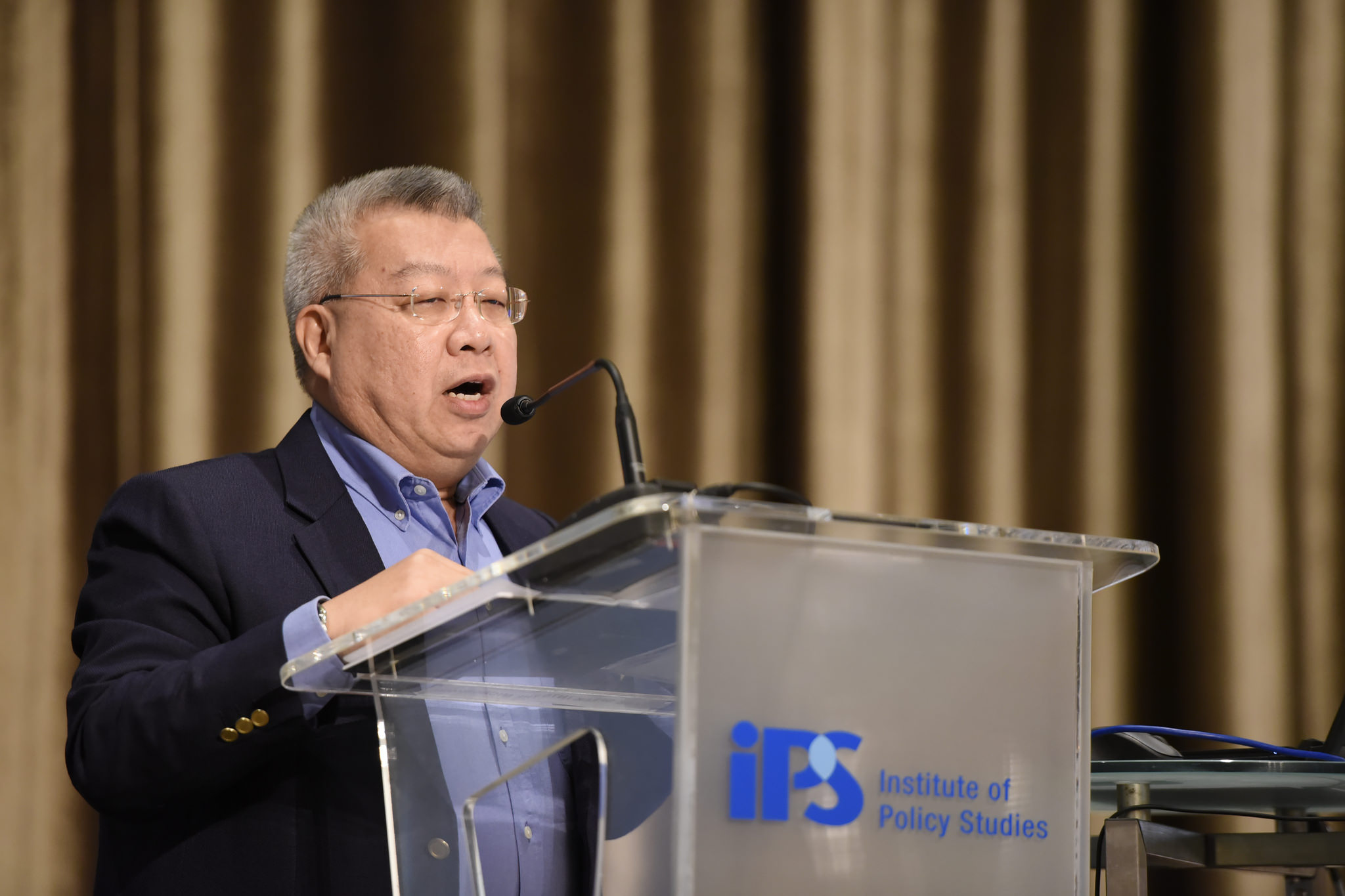Every time the late President S R Nathan met law professor Kevin Tan, he would always tell people, "Ah this man said I wasn't properly elected".
Then one day, Tan got "a bit fed-up" and told Nathan, "Sir, Sir, I never said you were not properly elected, I only said you were not elected."
Tan, a well-known constitutional law expert, recounted this lighthearted exchange to roaring laughter from more than 300 participants attending the Institute of Policy Studies (IPS) Forum on The Reserved Presidential Election on Sept. 8.

Speaking at the second session of the forum, Tan raised a few thought-provoking points about the upcoming reserved Presidential Election that we should all think about.
1. The definition of race in the Constitution is "tautologous"
"If you look at the Constitution, they talk about the Chinese community, who is a Chinese, who is an Indian. In both the cases of the Indian and other communities, as well as the Chinese community, all the candidates need to do is to define himself or herself as Chinese, and is accepted by the Chinese as Chinese. Same thing with Indians and others. Someone belonging to Indian or other minority who considers himself or herself to be a member of the Indian community or Other community and is accepted as such by that community. Seems fairly simple."
But it is not.
"It's tautologous. If I cannot define the individual as is or is not a Chinese, then where am I going to locate the Chinese community? And it applies right down the line."
[related_story]
2. The definition of "Malay" in the Constitution is anomalous
According to Tan, "who is a Malay?" is a highly problematic legal question.
He pointed out an anomaly in the definition in the Constitution, which was different from the definition of other races.
 Source: Singapore Statutes Online
Source: Singapore Statutes Online
"With Malay candidates, it gets even more interesting, because I think back in 1988, this formula when it was first brought up, they already recognised that it was almost next to impossible to define who is or is not a Malay...Because it is a social construct, we make it up, about race, about who is and is not a Malay, or Chinese or so on. It is actually socially constructed. In the case of the Malay, it actually says, a person belonging to the Malay Community means any person and here nobody else has this phrase 'of the Malay race or otherwise'. So this means that I, meaning Kevin Tan can say I am Malay, even though I am not of Malay stock, theoretically. "
3. More stringent criteria will result in less minority candidates coming forward
Tan who had spoken at the Constitutional Commission hearing on Elected Presidency last May, was not in favour of raising the bar for the qualification criteria.
"It is a numbers game, the more difficult you make a criteria, the less likely you are going to get a minority member in it...How then do you square with this? There is a major disparity and I think the parliament missed an opportunity to redress this and maybe it was intentional not to redress this because the public sector qualification provides what people may eventually consider a "backdoor" into the Presidency."
Ouch.
4. Having a contest is important for legitimacy
The overwhelming sentiment on the ground right now is that, the first reserved Presidential Election for Malay candidates will be a walkover.
You-know-who as the only qualified candidate, will most likely be our next President (first female one too).
But Tan thinks that the question of legitimacy should not be taken lightly.
"You should have an election because the whole purpose of transforming what used to be a nominated office, where you don't even have to worry about telling people what race you choose, you just pick somebody you thought was good. The whole purpose of this was that so this person has the mandate to actually stop an elected government. That is quite different from putting yourself forward in an election, because you are not running for a political office. You are there to safeguard the reserves."
All images from IPS’ Flickr page.
If you like what you read, follow us on Facebook, Instagram, Twitter and Telegram to get the latest updates.



